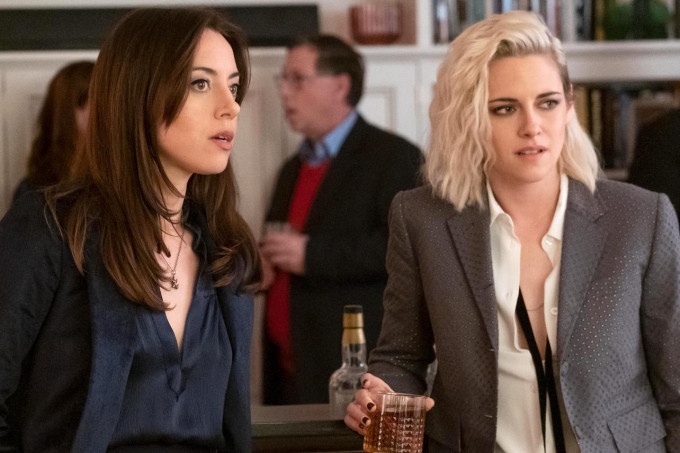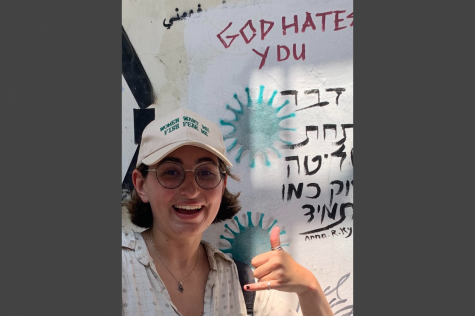REVIEW: ‘Happiest Season’ fumbles its promising holiday rom-com setup
Photo obtained from Hulu
“Happiest Season” styled itself as a feel-good queer holiday rom-com, but the film disappointingly bungles its core messaging of inclusiveness.
January 1, 2021
I am the “Happiest Season’s” ideal audience, with an unwavering love for both Dan Levy and Kristen Stewart, as well as a soft spot for holiday movies that deviate from the nauseating Hallmark norm. Sadly, the “Happiest Season” fell tragically short of my expectations, due to its questionable marketing choices and rough execution.
One of the reasons why myself and many others got excited for the “Happiest Season,” besides its stellar cast, was the promise of a queer holiday rom-com. Queer romantic comedies are incredibly rare, especially since most LGBT cinema focuses on highly traumatic or saddening subjects. This isn’t to say that those serious movies (such as the modern masterpiece “Moonlight”) are bad, but it’s a nice change of pace to consume a comical movie without having it end in tears or be permeated throughout in homophobia. However, “Happiest Season” is not that movie, despite what its advertising and categorization may claim.
While there are many funny moments, especially with Levy (who shines throughout the movie as John) the movie deals entirely with coming out, making it too serious and tense to be fitting of the rom-com title. The entirety of film essentially documents the declining happiness of one of its key lesbian characters, Abby (Stewart). Abby starts the movie happy, only to experience an hour and a half worth of painful reclosetings, witnessing her girlfriend Harper (Mackenzie Davis) flirt with an ex boyfriend, and being forced to hide and lie. It is incredibly depressing, a feeling which worsens with the mishandling of the film’s core theme: Just because your partner isn’t ready to come out doesn’t mean they don’t love you.
While this statement is true and valid, the failed execution of it in “Happiest Season” negates the reality of the lived queer experience. Toward the second half of the movie, the film begins to demonize Abby for not wanting to recloset herself for Harper, because Harper loves her. Harper’s love for Abby does not disappear or amount to nothing just because she isn’t out, however, the movie and its queer characters seem to forget how damaging the closet can be. Instead of validating the pain Abby experiences by having to recloset herself, especially since the closet is incredibly damaging to the mental health of many queer people, “Happiest Season” constantly forces her into hurtful, toxic situations, portraying a rather unhealthy relationship in its grappling for a message.
This is not to say that I didn’t enjoy “Happiest Season,” but it stands a critical reminder of Hollywood’s deeply flawed portrayal of queer people and relationships. It is so rare to find a queer rom-com or coming of age movie without having to deal with the treacherous process of coming out, in fact, I genuinely cannot think of an example. A good queer rom-com can be the same as any other generic Netflix creation starring Noah Centineo — it just needs to star queer characters. The movie can remain identical to its straight counterpart, with exception of the love interest’s gender, and it can be the nice, refreshing change I had expected from Hulu’s “Happiest Season.” Unfortunately, I’m still waiting for that to happen.


